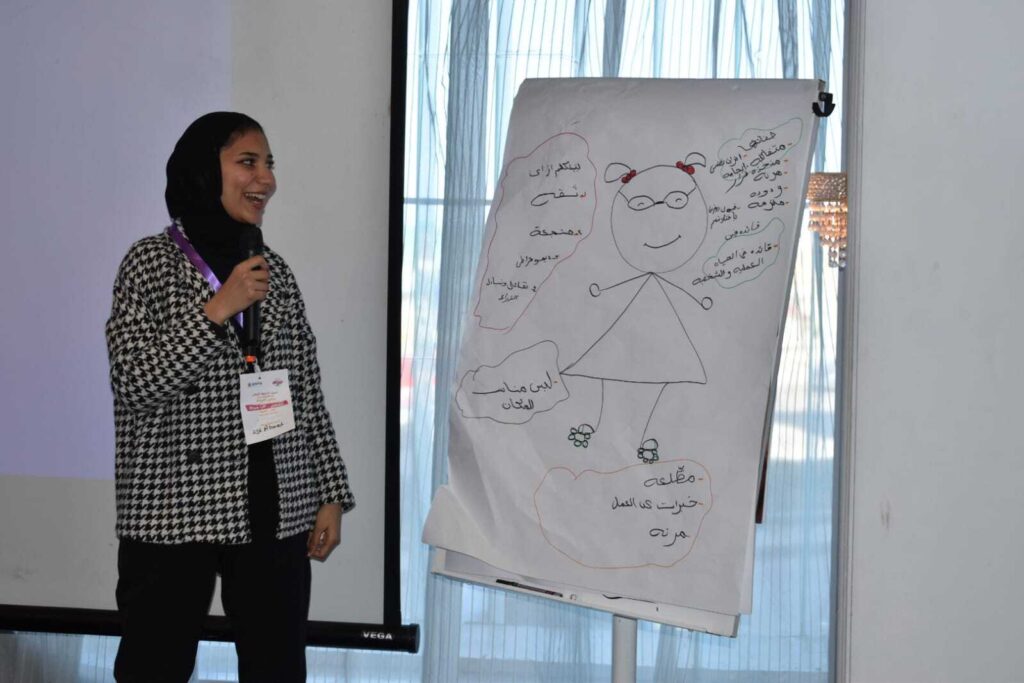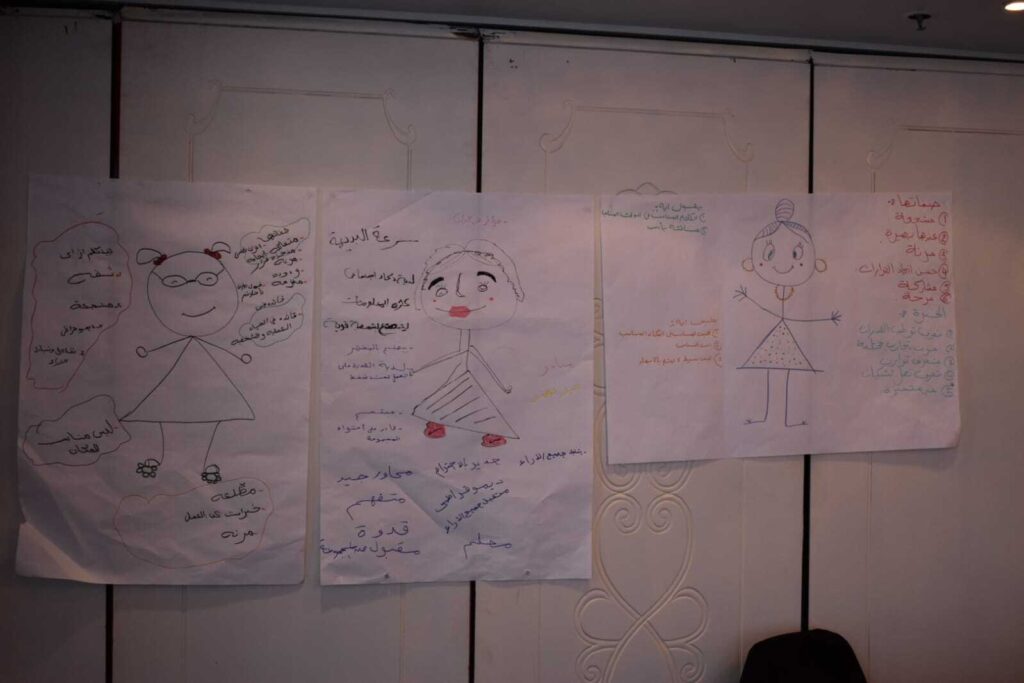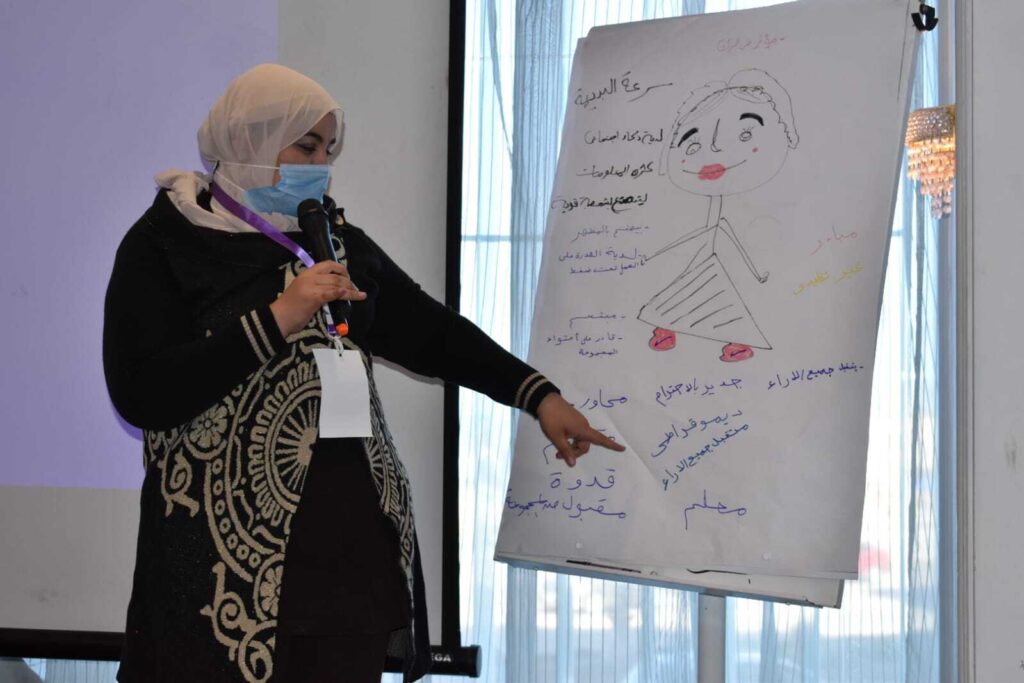Co-creating Young women clubs in Egypt as an adaptation to the World YWCA safe space model.

World YWCA, though the YW4A programme, has for the first time, since the development of its RiseUp! Leadership training model in 2010, rolled out the training to MENA and the Africa Regions. RiseUp! provides peer to peer leadership and advocacy training to young women and supports them to build knowledge, skills and networks to take action on issues that are important in their lives, such as violence against women and girls, sexual and reproductive health and rights, climate justice and gender equality. The model has supported young women to build knowledge and confidence, challenging the human rights violations and negative attitudes that are barriers to the full realization of their leadership capabilities.
One of the critical components of the RiseUp! Leadership training model is the safe spaces, a concept used by women, young women and girls to share their leadership in a consultative and collaborative way. The YWCA movement has been providing safe spaces for women, young women and girls since 1855. Their use and purpose have evolved over the years to respond to its member’s empowerment needs, including the concept of creating virtual safe spaces, propelled by the global Covid-19 crisis in 2020. Safe spaces are guided by eight principles – accessible and safe location, leadership and participation, accurate and reliable information, building trust, holistic approach, Inter-generational co-operation, dignity and respect and partnership and accountability. These elements are further discussed in the this simple to use toolkit.

It is with these principles and elements that the YW4A programme sought to co-create safe spaces for young women in Egypt during the recently concluded Rise Up! training in Egypt. In a country where safe public spaces are a myth[1], it is reported that 99.3% have faced a form harassment in public space. It is argued that there are few public spaces where young women feel safe to convene. Indeed, the young women welcomed the idea wholeheartedly. The young women envisioned four critical roles of the clubs:
- A place of relaxation and entertainment. Comments like ‘we would like a space where we can let our hair down and be ourselves away from home.’ dominated the discussion. To the young women, spaces outside the home where they can unwind and connect with fellow young women are limited. The safe spaces within the programme would provide such a platform.
- A place for economic advancement. The young women felt these safe spaces would be a platform to explore their crafts and interactive theatre and result to improvement of their economic potential
- A place for trauma informed care. The young women would feel safe enough to share their experiences and receive the necessary support they would need.
- A place for learning and mentorship. To them, the clubs would be a place to share experiences and jointly seek solutions and be mentored along their leadership journey.

Other considerations made revolved around rules of engagement specific to the context. For example, to ensure safety and security, the safe spaces should not have door men /gate keeper restricting entry by young women, be close to public transportation to ease access and have a safe space guardian. To ensure dignity, respect and accountability, they recommended good furniture, motivational quotes on the wall, inspiring artwork among other recommendations. The YW4A programme will support the establishment of young woman club as safe spaces in Egypt based on these recommendations.
[1] Jan Braker Architekt, 2019. ‘Women in Egypt The myth of a safe public space.’